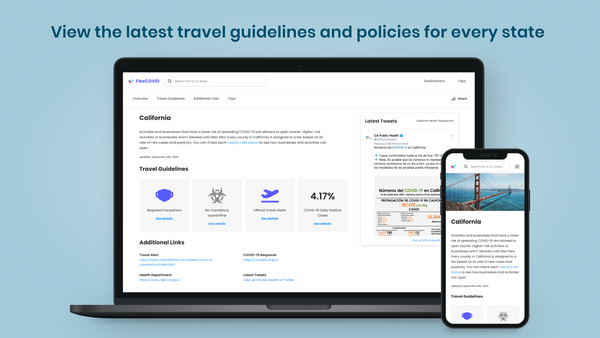Finding the Right Mentor
I had recently attended a workshop that was focused on "driving and owning your career". It was one of those typical workshops where you group up at a table, fill out some worksheets, share your journey with your peers, ya'know, the usual stuff. At the end of the workshop and after conversing with several of the folks in my table, I found there was a common theme that they were all struggling with.
How do I find the right mentor and what does it mean to have one?
The pilgrimage
Ahhhh yes, the search for the perfect mentor has always been a journey riddled with obstacles. It's difficult trying to find someone that's the right fit - you desire someone who's technically strong, powerful, and even open to the idea of being your mentor. Some companies have tried to alleviate this difficulty by creating forced mentor-mentee relationships. They may assign you a person who's on your team; they may assign you someone random who has a similar background; or they may try to set you up with someone through a networking opportunity akin to speed dating.

Sometimes you are lucky and it actually works out very well! However, more often than not, you're unsure if this person is really the best mentor and fit for you. You're hesitant if this person can provide you everything you need, but you're happy that you at least got someone. So you just stick with this person... or simply accept your fate and go mentorless for the rest of your career. Sounds a lot like dating.........
Of course, this is not to the fault of the company or the mentor/mentee -
sometimes it's just not a good fit. Unfortunately, there is no perfect solution to finding a mentor. But! I can at least provide some guidance to help you identify what qualities you should be looking for in a mentor and how to best leverage him/her to grow your career. I hope to draw on own personal experiences and build from what I've seen from my peers.
What do I look for?
On your search for a mentor, I would first like to call out that there are two types of mentors: technical and professional.
A technical mentor is one who will help you grow and hone your skills. This mentor is responsible for making sure you are good at what you do; providing insight on how to be the best in your craft and share any secrets from his/her many years of experience. This is probably the most common and easiest mentor to find. This is what many seek when they're first starting their careers. As important as this mentor is to refining your skills, you should also be actively looking for a mentor that can provide you with professional expertise.
A professional mentor is one who helps provide you insight on how to grow your professional career. This person will be teaching you how to navigate the company, influence people, sell yourself, present controversial ideas, and how to put yourself in a better position to succeed. This mentor is probably the most difficult to find and is usually not a mentor that many actively seek, but is imperative to help you take your career to the next step.
Your mentor is effectively your champion...your mentor can directly put you on the right projects; help give you visibility to the higher ups; sell your abilities to his/her peers; and can have a direct impact on your promotion process.
So how do you find someone with these qualities? Some will try to find two mentors that can provide guidance for each track, but these two types of mentors are not mutually exclusive. Although it's difficult to find someone who is willing and able to mentor you both technically and professionally, it's not impossible. It only seems hard because I believe that a lot of folks are misguided on how to find a mentor. They are often told to find someone who is one level higher - as that is the natural career progression (e.g. if you are a Software Engineer I, you should find a Senior Engineer). I fundamentally believe that this is wrong. Instead, I'd recommend finding someone who not just one level higher, but someone two, three, or even four levels higher than you.

If you're only a Software Engineer I, find someone who is a Principal or Architect. If you're a Product Manager, find someone who's a Director. Why do I believe this? This person has an obvious set of skills in his/her repertoire that made him/her technically strong. However, this person has also gone through a deep career progression, which can serve to guide you not just to the immediate next level, but many levels beyond that. Not only that, since your mentor is in a higher level role, he/she has direct influence in helping you shape your career. Your mentor will effectively be your champion As your champion, your mentor can directly put you on the right projects, help give you visibility to the higher ups, sell your abilities to his/her peers, and can have a direct impact on your promotion process.
What to discuss?
Say you've found the right mentor, what should you discuss? Truth be told, you should feel comfortable with your mentor where anything is considered "open game". Your mentor should be someone you can trust and be assured that spilling your deepest darkest secrets will not negatively impact you.
You should be willing to talk about anything: how to ask for a raise, how to work with a difficult team member, how to be better at designing an API, how to sell an idea to your team, etc. Set up a regular cadence with your mentor and make sure you always have something you can talk about. Even something as simple as "what can I do better?" can go a long way. Oftentimes people don't get the maximum value of their mentors because they are afraid of being told when they suck. Be ready to be exposed to your vulnerabilities - accept constructive criticism and learn from them.
For example, recently my mentor told me that one of the things I can better at involved "taking a side and making a decision". I oftentimes try to be too diplomatic and tread along the fence in fear of making one of two sides unhappy. I also tend to be quick to call out a particular problem without properly backing a solution that may have been presented. He provided specific scenarios and situations that I didn't even realize were issues until he told me. That's when I realized I sucked in these scenarios. So from this conversation, I've been able to take these gaps as opportunities I can improve on, and I'm now more aware when I put myself in these situations and have been taking actionable steps to work on it.
It's a two way street
At the end of the day, your relationship with your mentor is a two-way street. Not only should you be able to get the most out of your mentor, your mentor should also ensure that they are seeing a valuable investment of his/her time. Hopefully, you are committed to self-improving and don't 100% suck balls. Because if you don't keep yourself honest and don't make any strides to actually be better, you are wasting everyone's time. Also, don't mistake your mentor as someone you can bitch to. Sure you can definitely complain to him/her about your situation, but if that's all you're doing, that's a peer, not a mentor.

I've been very lucky in my career to have been able to find people who I've been able to call both my mentors and my friends. Not everyone is so lucky, and hopefully, you can find someone organically too. Because once you do, ride his/her coattails to victory. And just like dating, if you're unsure of what's out there, you may be comfortable of settling with a mediocre mentor. Never settle! Find the best one for you, because you deserve it, you beautiful bastard.




